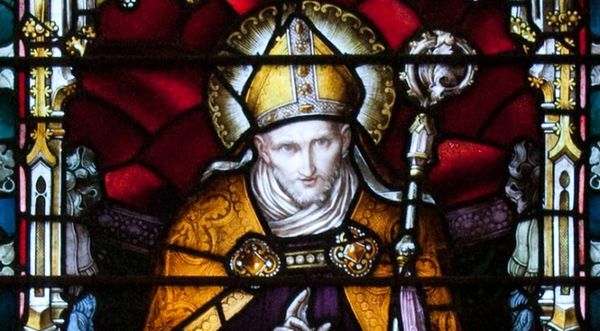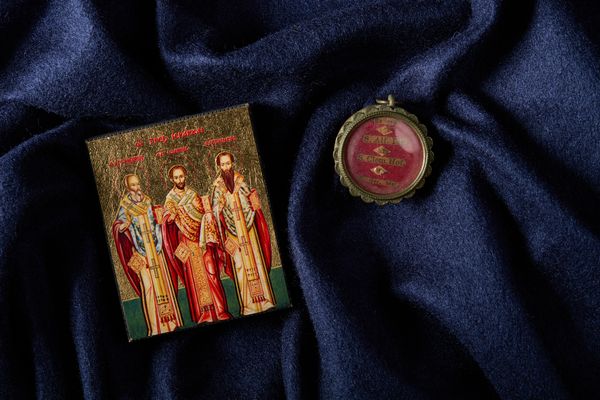Alphonsus Maria de Liguori was born in 1696 near Naples, his parents provided him with an exceptional education in philosophy, literature, and the arts. At 16 he was awarded doctorates of civil and canon law. When he was 18, he joined the Confraternity of Our Lady of Mercy with whom he cared for the sick at the hospital for “incurables,” washing afflicted bodies, feeding the helpless, changing bedclothes and devoting himself to works of mercy and compassion.
Following his father’s desire he became a lawyer. Before he was 20, he was regarded as one of the most gifted lawyers working in the kingdom of Naples. This work, however, despite its success, did not satisfy him at the deepest levels of his heart and soul. Alphonsus left the legal profession to enter the priesthood, much to the disappointment of his father. He was ordained in 1726.
In 1732, Alphonsus realized he could no longer be comfortable in his role of popular preacher living apart from the poor. So, leaving his family and his dearest friends, he set out to dedicate himself completely to the service of the poor and most abandoned. He sought others who were called as he was and adopted a style of ministry to “mission among the people” — and so began the Congregation of the Most Holy Redeemer, commonly known as the Redemptorists.
During a mission, a band of Redemptorist priests and brothers would come to an area to preach and conduct religious activities. They saturated the people with the sense of God. They lived in community in houses in the countryside so that the mission revivals could be repeated regularly, which gave the poor the assurance they would not be abandoned by Alphonsus and his brothers.
Preacher, Hymn & Spiritual Writer
Three great images, basic to the Christian faith, formed the heart of Alphonsus’ preaching and teaching — Jesus an infant in the crib, Jesus crucified on the Cross, and Jesus vibrantly alive and filled with love for all in the Eucharist. To this he added the image of Mary, the Mother of the Redeemer. When other theologians were opposed to devotion to Mary, Alphonsus invoked her: “Hail Holy Queen, Mother of Mercy, our life, our sweetness, and our hope.”
Alphonsus appreciated how the poor and working-class people expressed their realities through song. Alphonsus was gifted musician and composer, he wrote many popular hymns and taught them to the people in parish missions. His compositions continue to be sung around the world and have never lost their charm and popularity. Redemptorists today still follow the cue of their founder. Their message, announcing the abundance of God’s love, is enriched by the spiritual songs they sing in their community and with the people of God.
Alphonsus wrote for the people. Many turned to his spiritual writing, for he wrote in a way that was understandable to anyone with a basic education. On winter evenings in his time, the people in the villages often gathered around a fire in someone’s home. Someone read stories about the Gospels or the lives of the saints, things that nourished their faith and helped them to pray. Alphonsus’ works were frequent choices.
Artist
Alphonsus’ art was influenced by what he saw around him. When he was 23, he painted his own “Christ on the Cross.” His painting depicted the death of Love itself. Around that same time, he also painted a picture of the Madonna as a woman of peaceful, gentle features — a woman who won his heart. Surrounded by 12 stars she is the portrait of divine beauty in human form. His art, like his music, was a way to lead the men and women of his day, rich and poor, to know the surpassing riches of the knowledge and love of Jesus Christ and his mother Mary.
In his writings for other religious, Alphonsus emphasized practical approaches to reach those who were neglected or alienated from the Church. On a scientific level, he gave new life and direction to moral theology. He found many prominent moral theologians of his time either too rigid or too lax. It was Alphonsus who preached the redeeming love of God.
He believed that law and the threat of punishment were not foremost in God’s plan. In God the Creator, love and freedom coincide. The individual was called to love God out of an overwhelming sense of gratitude for what God had done for him in Christ. It was not fear but love that was to characterize the Christian way of life. Ultimately, he wrote his most influential work, Moral Theology, to correct what he saw as errors that could hurt people struggling to live good and moral lives. During his long life, Alphonsus authored more than 100 books, including his most beloved: Visits to the Blessed Sacrament, The Practice of the Love of Jesus Christ, and The Glories of Mary.
If I did not pray my rosary for even one day, I would fear for my eternal salvation.
Alphonsus would eventually be given the title “Doctor of Prayer” by the Catholic Church. His book, Prayer, the Great Means of Salvation, sets out his teaching on the subject.
“Having observed,” Alphonsus writes, “that so many passages of both the Old and New Testaments assert the absolute necessity of prayer, I have made it a rule to introduce into all our missions … a sermon on prayer; and I say, and repeat, and will keep on saying as long as I live, that our whole salvation depends on prayer … For if you pray, your salvation will be secure.”
Credits:
Discriptions of saints lives and biographies have been excerpted, summarized, or compiled from
Franciscan Media,
CatholicSaints.Info,
Catholic Online, and
Wikipedia.






